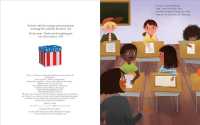- ホーム
- > 洋書
- > 英文書
- > History / World
Full Description
Too Serious a Business reframes the road to 1939 by shifting the spotlight from cabinet rooms to General Staffs. Donald Cameron Watt argues that, unlike 1914—when belligerent militaries hustled civilians toward war—the late-1930s saw the reverse: senior officers across Britain, France, Germany, and Italy warned of disaster, resigned in protest, or quietly conspired to avert catastrophe while civilians pressed forward. From General Beck's break with Hitler and Vuillemin's grim air-power assessments to Pariani's pessimism and the British Chiefs of Staff's pre-Munich gloom, Watt reconstructs a Europe in which professional soldiers hesitated—even as civil societies slid toward confrontation. Setting the Second World War's opening phase within what contemporaries felt as a pan-European "civil war," he traces how interwar paramilitaries, ideological polarizations, and the collapse of shared diplomatic conventions eroded a once-cohesive civitas Europae.
Marrying high politics with institutional and intellectual military history, Watt examines four interlocking questions: how General Staffs related to fractured domestic orders; how well they adapted doctrine to rapid technological change (tanks, aircraft, radio, radar); how they read enemies and threats; and, crucially, what advice they actually gave in the climacteric of 1938-40. The result is a comparative anatomy of armed forces under strain—from strategy papers and war plans to the moral economies of officer corps—set against the failing League order and the eclipse of Europe's pre-1914 elite networks. Rejecting tidy ideological explanations, Watt's narrative shows how misaligned strategic assumptions and uneven modernization—rather than simple bellicosity—shaped the march to war and the stunning defeats of 1940. Written with breadth and archival rigor, Too Serious a Business will engage scholars of military and diplomatic history, students of interwar Europe, and readers seeking a bracing account of how institutions built to prevent disaster can become its reluctant midwives.
This title is part of UC Press's Voices Revived program, which commemorates University of California Press's mission to seek out and cultivate the brightest minds and give them voice, reach, and impact. Drawing on a backlist dating to 1893, Voices Revived makes high-quality, peer-reviewed scholarship accessible once again using print-on-demand technology. This title was originally published in 1975.








